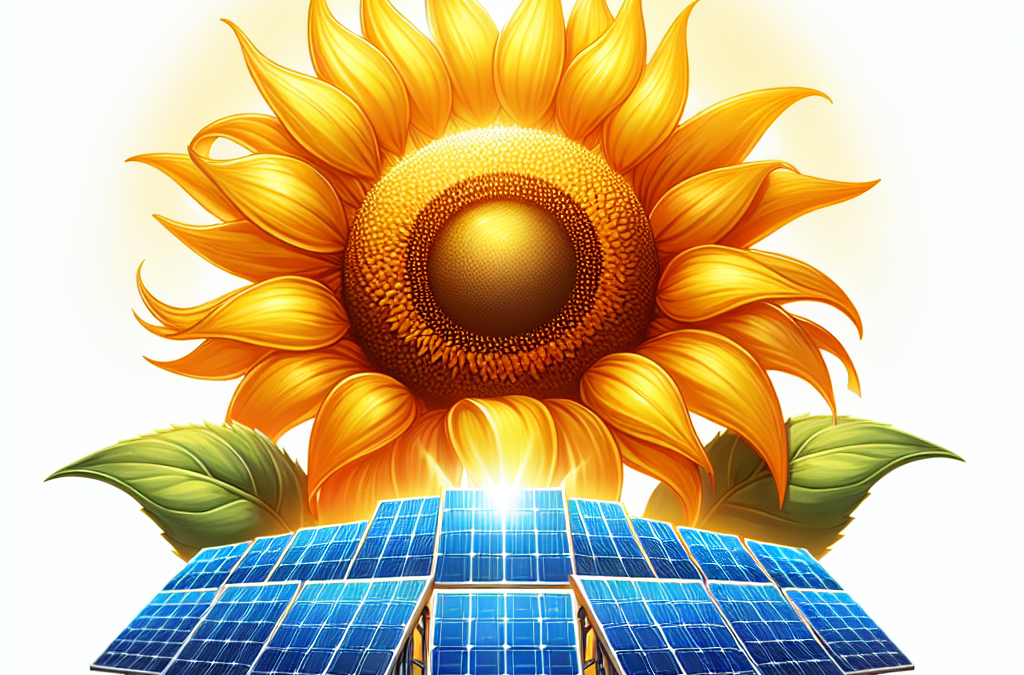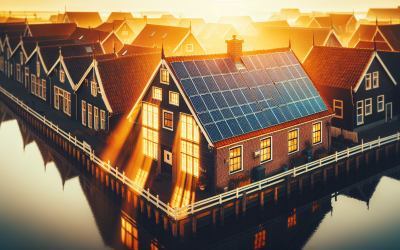If you’re considering going solar but are hesitant about the upfront costs, you’ll be glad to know that there is an alternative option: leasing or renting solar panels. Rather than shelling out a large sum of money to purchase the panels outright, this alternative allows you to enter into an agreement where you’ll pay a monthly fee to use the panels on your property. This article explores the advantages and disadvantages of leasing or renting solar panels, helping you decide if this payment structure is a good fit for your energy needs.
Benefits of Leasing or Renting Solar Panels
Cost Savings
One of the primary benefits of leasing or renting solar panels is the potential for cost savings. When you lease or rent solar panels, you are not responsible for the upfront investment required to purchase the equipment. Instead, you pay a monthly fee, which is typically lower than the cost of purchasing and installing your own solar panels. This can result in immediate savings on your electricity bills.
No Upfront Investment
Leasing or renting solar panels eliminates the need for a large upfront investment. This can be particularly appealing for those who do not have the financial means or desire to make a significant initial payment. By choosing to lease or rent, you can enjoy the benefits of solar energy without the financial burden of purchasing the equipment outright.
Maintenance and Repairs Covered
Another advantage of leasing or renting solar panels is that the responsibility for maintenance and repairs is typically covered by the leasing company or rental provider. This means that if there are any issues with your solar panel system, you can rely on the company to take care of any necessary repairs or maintenance. This can save you both time and money, as you won’t have to worry about finding a reputable technician or paying for any unexpected expenses.
Flexibility and Scalability
Leasing or renting solar panels also offers a great deal of flexibility and scalability. If your energy needs change over time, you can easily upgrade or add additional panels to your system. This allows you to adapt to any increases in energy consumption without the hassle and expense of purchasing a completely new system. Additionally, if you decide to move to a new location, you can simply transfer the lease or rental agreement to the new owner of your property, providing you with flexibility and peace of mind.
Drawbacks of Leasing or Renting Solar Panels
Long-Term Cost
While leasing or renting solar panels can offer short-term cost savings, it’s important to consider the long-term cost implications. Over the duration of your lease or rental agreement, you may end up paying more for your solar panels than if you had purchased them outright. Additionally, if you choose to extend your lease or rental agreement, you will continue to pay a monthly fee, which may increase over time. It’s crucial to carefully evaluate the long-term financial implications before committing to a lease or rental agreement.
Limited Control
When you lease or rent solar panels, you have limited control over the equipment and system. The leasing company or rental provider retains ownership and control of the solar panels, which means you must adhere to their rules and regulations. This can include restrictions on system modifications or limitations on the amount of energy you can produce. If having control and customization options is a priority for you, purchasing your own solar panels may be a better option.
Transferability
Another drawback of leasing or renting solar panels is the issue of transferability. If you decide to sell your property before the lease or rental period ends, you will need to find a buyer who is willing to take over the agreement. This can add an extra layer of complexity when selling your home and may limit your pool of potential buyers. It’s important to consider your future plans and the likelihood of staying in your current location for the duration of the lease or rental term.
Contract Obligations
When entering into a lease or rental agreement for solar panels, it’s essential to carefully review the contract obligations. These agreements often come with specific terms and conditions that you must adhere to. This can include requirements such as maintaining a certain level of insurance coverage, obtaining necessary permits, or adhering to specific maintenance schedules. Failure to fulfill these obligations can result in penalties or other consequences, so it’s important to fully understand and comply with the terms of your agreement.
Leasing vs. Renting Solar Panels
Leasing Solar Panels
When you lease solar panels, you enter into a long-term contractual agreement with a leasing company. The lease typically lasts for a predetermined number of years, during which you pay a fixed monthly fee. The leasing company retains ownership of the equipment, and you benefit from the energy produced by the solar panels. At the end of the lease term, you often have the option to renew the lease, purchase the panels at a discounted price, or have them removed.
Renting Solar Panels
Renting solar panels, on the other hand, is a shorter-term arrangement. While leasing involves a long-term commitment, renting allows you to have the solar panels installed on your property for a predetermined period, usually one to five years. During this time, you pay a monthly rental fee for the use of the panels. Unlike leasing, renting typically does not provide an option to purchase the panels at the end of the rental term. However, you can negotiate a renewal or explore other rental or purchase options at the end of the contract.
Choosing the Right Leasing or Rental Option
Researching Companies and Options
When considering leasing or renting solar panels, it’s important to thoroughly research companies and options available to you. Look for reputable companies with a proven track record in the solar industry. Read customer reviews and seek recommendations from trusted sources. Additionally, consider the types of leasing or rental options offered by each company. Some may offer more flexible terms or additional benefits that align with your needs and preferences.
Understanding the Terms and Conditions
Before committing to a lease or rental agreement, it’s crucial to carefully read and understand the terms and conditions. Pay attention to details such as lease duration, payment terms, potential escalations in fees, and any restrictions or requirements outlined in the contract. If there are any unclear or confusing clauses, don’t hesitate to seek clarification from the leasing or rental company. Make sure you fully understand your rights and responsibilities before signing any agreement.
Comparing Costs and Benefits
Evaluate the costs and benefits associated with each leasing or rental option. Compare the monthly fees, potential long-term costs, and any additional services or benefits included in the agreement. Consider factors such as warranty coverage, system performance guarantees, and the reputation of the equipment being leased or rented. By comparing the costs and benefits of different options, you can make an informed decision that aligns with your budget and overall objectives.
Determining Eligibility for Leasing or Renting
Credit Score and Income Requirements
Leasing or renting solar panels typically involves a credit check and income verification process. Companies offering these services want to ensure that you have the financial means to meet your monthly obligations. While specific credit score and income requirements may vary between providers, having a good credit score and stable income can increase your chances of being approved. If you have concerns about your credit or income, discuss your situation with potential leasing or rental companies to explore options that may be available to you.
Location and Property Eligibility
The location and eligibility of your property can also play a role in determining whether you are eligible to lease or rent solar panels. Solar panels require adequate sunlight exposure to generate electricity efficiently, so properties in areas with ample sunlight are typically more desirable. Additionally, the type and condition of your property’s roof or available land may affect its suitability for solar panel installation. Consult with solar providers to assess the feasibility and eligibility of your location before proceeding with leasing or renting options.
Factors to Consider before Leasing or Renting
Energy Usage and Needs
Before deciding to lease or rent solar panels, it’s important to evaluate your energy usage and needs. Consider your historical electricity bills, the size of your property, and the number of occupants. Determine whether an appropriately-sized solar panel system could meet your energy needs and potentially offset a significant portion of your electricity costs. By understanding your energy usage and needs, you can assess whether leasing or renting solar panels would be a viable and cost-effective solution.
Property Ownership and Duration of Stay
If you don’t own the property where you reside, leasing or renting solar panels may be a more suitable option than purchasing them. Leasing or renting allows you to enjoy the benefits of solar energy without the need for property ownership. Moreover, consider how long you plan to stay in your current location. If you anticipate moving within a few years, leasing or renting solar panels provides flexibility, as you can easily transfer the agreement to the new property owner.
Future Plans and Flexibility
Consider your future plans and the flexibility you desire when choosing a solar panel option. If you foresee potential changes to your energy needs, such as acquiring an electric vehicle or expanding your property, leasing or renting solar panels may offer more flexibility. This allows you to easily modify or upgrade your system as necessary. Conversely, if you have long-term plans and prefer ownership and control over the system, buying solar panels outright might be a more suitable choice.
The Leasing or Rental Process
Initial Consultation and Site Evaluation
The leasing or rental process typically begins with an initial consultation and site evaluation. A representative from the leasing or rental company visits your property to assess its suitability for solar panel installation. They will evaluate factors such as available roof space, orientation, shading, and electrical infrastructure. The representative will also discuss your energy needs, financial considerations, and answer any questions you may have. This consultation allows both parties to determine if the leasing or rental option is a good fit.
System Design and Proposal
After the initial consultation, the leasing or rental company will design a solar panel system tailored to your property and energy needs. They will present you with a proposal that includes details such as the number and size of panels, estimated energy production, and financial terms. Take the time to review the proposal carefully, ensuring that it aligns with your goals and expectations. If you have any concerns or require modifications, discuss them with the company to reach a suitable solution.
Signing the Agreement and Payment Terms
If you are satisfied with the system design and proposal, you can proceed to sign the lease or rental agreement. This legally binding document outlines the terms, conditions, and responsibilities of both parties. It’s crucial to thoroughly read and understand the agreement before signing it. Pay attention to details such as the lease duration, payment terms, and any penalties or termination clauses. Only proceed with signing if you are comfortable with the terms and trust the leasing or rental company.
Installation and Activation
Getting Necessary Permits and Approvals
Before the solar panel installation can begin, it’s essential to obtain any necessary permits and approvals from local authorities or homeowner associations. The leasing or rental company typically handles the permitting process, ensuring compliance with relevant regulations. Depending on your location, the permit acquisition process may vary in duration. The leasing or rental company will keep you informed about the progress and any additional steps required.
Scheduling and Timelines
Once the permits are in place, the leasing or rental company will schedule the installation of your solar panels. The specific timeline depends on factors such as weather conditions, the complexity of the installation, and the availability of the company’s installation team. The company will notify you of the scheduled date and any preparations required on your part. It’s important to be flexible and accommodating during this process to ensure smooth installation and activation of your solar panel system.
Solar Panel Installation
On the scheduled installation day, a team of skilled technicians will arrive at your property to install the solar panels. They will follow the design plan previously prepared by the company, ensuring proper placement and connection of the panels. The installation process can take a few days, depending on the size and complexity of your system. Throughout the installation, the technicians will take necessary safety precautions and minimize any disruption to your daily activities.
Monitoring and Maintenance
Monitoring Performance
Once your solar panel system is installed and activated, it’s crucial to monitor its performance regularly. Many leasing or rental companies provide monitoring systems that allow you to track your solar panel’s energy production and overall system performance. Monitoring enables you to identify any issues or deviations from expected results promptly. If you notice any significant discrepancies, contact your leasing or rental company for assistance and troubleshooting.
Regular Maintenance and Inspections
Regular maintenance and inspections are essential to ensure the optimal performance and longevity of your solar panel system. The leasing or rental company is typically responsible for conducting routine maintenance and inspections. This can include cleaning the panels, inspecting wiring and connectors, and addressing any potential issues. Regular maintenance visits are usually scheduled at agreed-upon intervals and may be outlined in your lease or rental agreement.
Warranty Coverage
Solar panel systems often come with product and performance warranties. Depending on the lease or rental agreement, the leasing or rental company may be responsible for managing warranty claims and repairs. Review the warranty terms and coverage details outlined in the agreement. It’s important to understand what is covered and how warranty claims should be handled. If you encounter any issues covered by the warranty, promptly contact the leasing or rental company to initiate the necessary repairs or replacements.
End of Lease or Rental Term
Renewal Options
Towards the end of your lease or rental term, you will have various options to consider. Some companies offer the opportunity to renew the lease or rental agreement, allowing you to continue benefiting from solar energy. Renewal terms and conditions may differ from the initial agreement, so carefully review the proposed changes and evaluate whether they align with your new circumstances and preferences. If you decide not to renew, you can explore other options, such as purchasing a solar panel system or returning to relying solely on traditional utility providers.
Equipment Removal and Restoration
If you choose not to renew your lease or rental agreement, the leasing or rental company is typically responsible for removing the solar panels from your property. This process may involve restoring your property to its original condition, ensuring that any roof penetrations or modifications are properly addressed. Discuss the equipment removal and restoration process with the leasing or rental company to understand their specific procedures and any responsibilities you may have in facilitating the process.
Lease Buyout or Return
In some cases, you may have the option to buy out your lease or rental agreement at the end of the term. The buyout price is typically predetermined and outlined in the contract. This option allows you to gain ownership of the solar panel system and continue benefiting from the energy it generates. Alternatively, if you decide not to buy out the agreement, the leasing or rental company will arrange for the removal and return of the equipment. Ensure that you comply with any associated procedures or timelines to avoid unnecessary complications.









